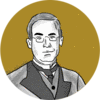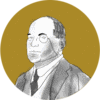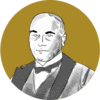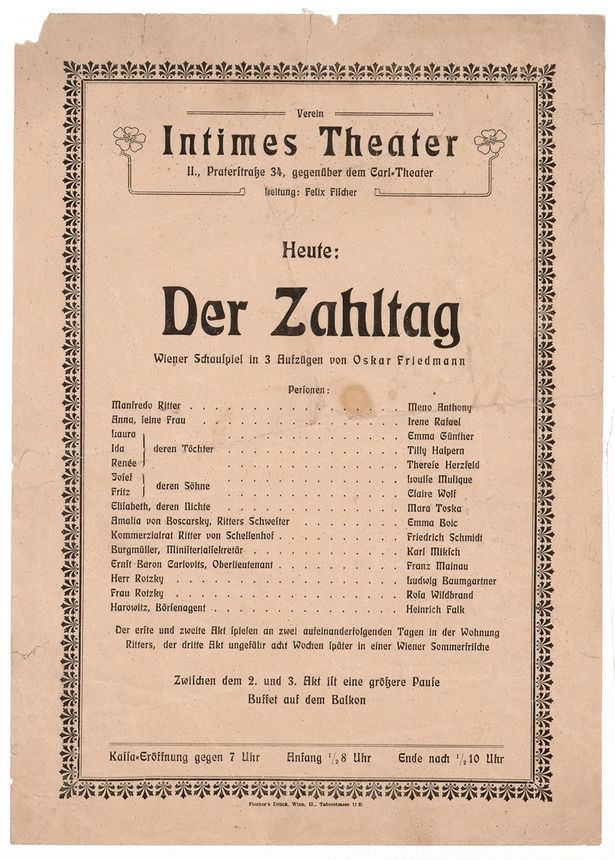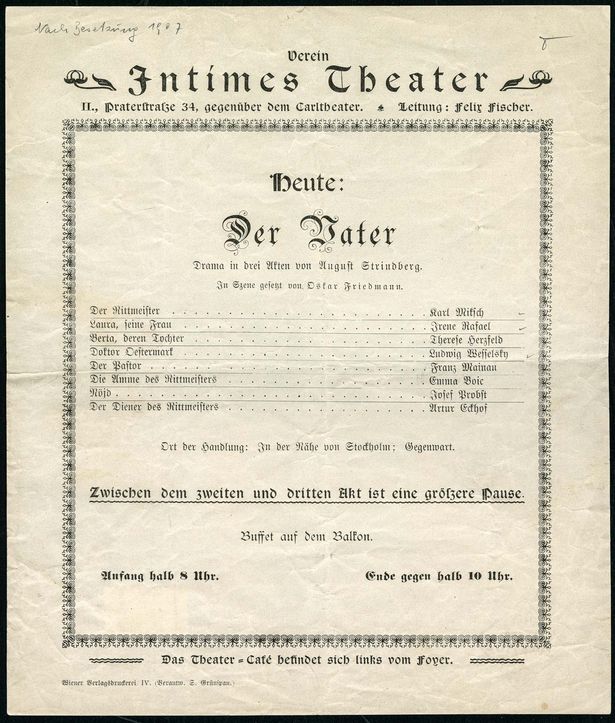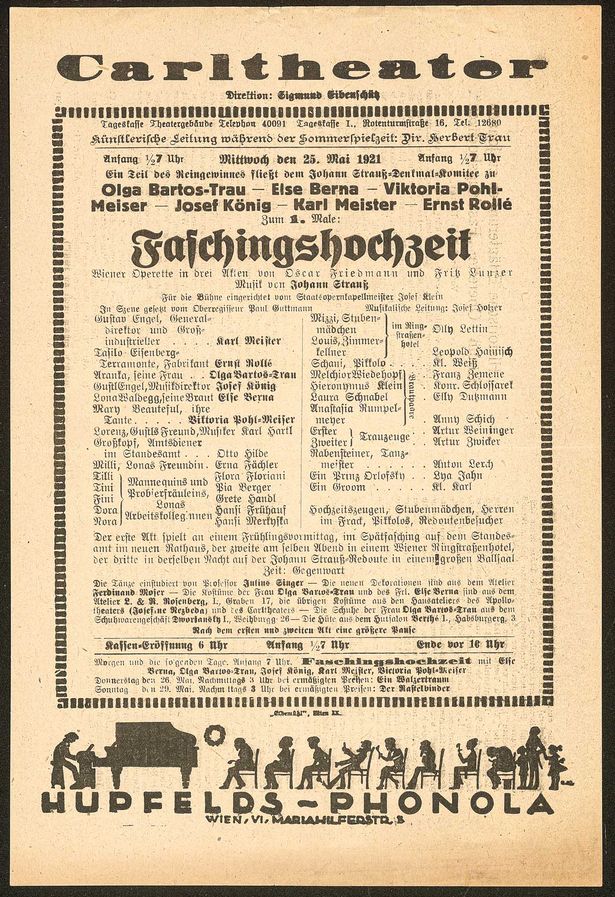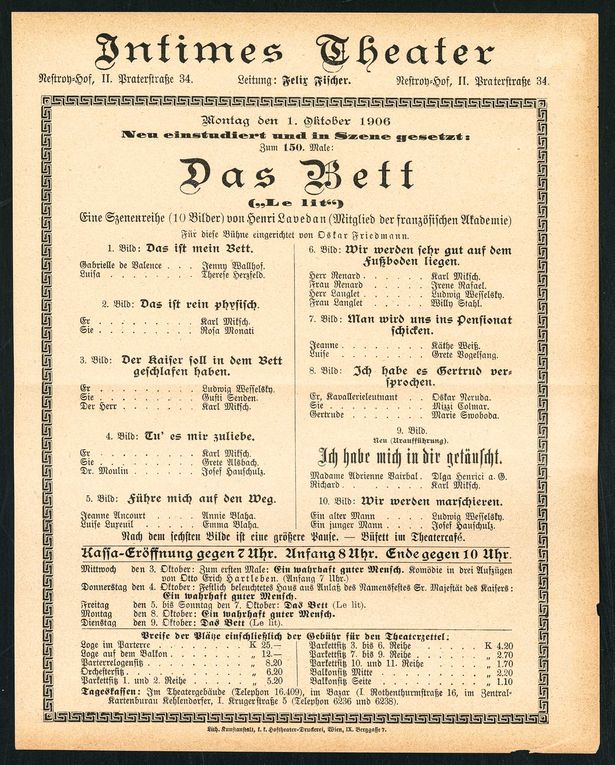Vienna, 15 May 1925
A Multitalented Man
and His Varied Career
A report by Isabella Gstättner
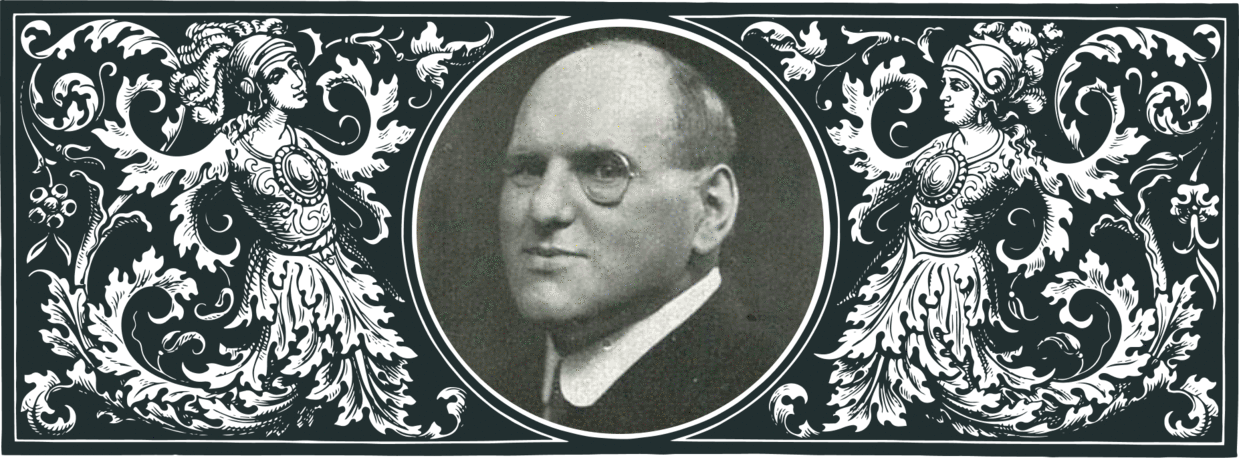
photo: Residenz-Atelier, in O. Friedmann (ed.), Prominenten Almanach
(Vienna and Leipzig, 1930), p. 80. Theatre, Film and Media Studies Library, Vienna University Library, Z-189
Our reporter Isabella Gstättner met Oscar Friedmann in front of his former favourite hang-out, the intellectual gathering place Café Griensteidl, which was popular before the turn of the century. They then strolled to Café Central, where literary figures have been gathering since the closure of Café Griensteidl. Over a coffee and pastries, she spoke with him about the successful Wiener Verlag, which he managed, and the Intime Theater in Nestroyhof. Friedmann proudly recounted his recent achievement with the newspaper revue Die große Trommel (‘The Big Drum’), which premiered at the Modernes Theater just a month ago.
Everyone in Vienna knows Goethe – that is, the stage actor Egon Friedell. He achieved great success, notably as the leading actor in his and Alfred Polgar’s play Goethe im Examen (‘Goethe Takes an Exam’), which premiered at the Fledermaus cabaret in 1908. However, his brother, Oscar Friedmann, whose interests extended into various artistic and economic directions, surpassed him in terms of fame. Oscar achieved literary recognition in 1905 with the comedy Das Dreieck (‘The Triangle’), which premiered at the Carltheater in Leopoldstadt. Hundreds of plays written by Friedmann were performed in Vienna alone. Simultaneously, he held the literary directorship at the Intime Theater. It all began in the legendary Café Griensteidl, situated at the corner of Michaelerplatz and Herrengasse, which established itself as a regular spot for young Viennese literature in the late 1880s. Notable writers such as Arthur Schnitzler (1862–1931) and Hugo von Hofmannsthal (1874–1929) frequented the café alongside Oscar Friedmann and Egon Friedell. Due to the decadence of the exclusive Bohemian clientele, it was mockingly known as Café Größenwahn (‘Café of Delusions’).
Literature in All Its Diversity: Wiener Verlag and the Intime Theater
After his father’s death, Friedmann sought to invest his inheritance wisely. He re-established the Wiener Verlag, which had been operating as the L. Rosner company since the 1870s. In 1905, two years after Friedmann’s departure from the publishing house, the enthusiastic literature lover saw another opportunity: he took on the literary responsibility and became the co-director of the Intime Theater, founded on suggestions from the journalist Felix Fischer. The theatre quickly became a prominent literary small stage. Here, he collaborated with his brother Egon, who worked as a dramaturg at the Intime Theater starting in 1907.
Oscar Friedmann also wrote numerous farces and librettos, often with his brother-in-law Ludwig Herzer (1872–1939), such as the operetta Die goldene Tochter (‘The Golden Daughter’). In March, the operetta Die Faschingshochzeit (‘The Carnival Wedding’), with a libretto by Friedmann and actor Fritz Lunzer, premiered at the Stadttheater Klagenfurt. Prior to that, the operetta had already been staged at the Vienna Carltheater.
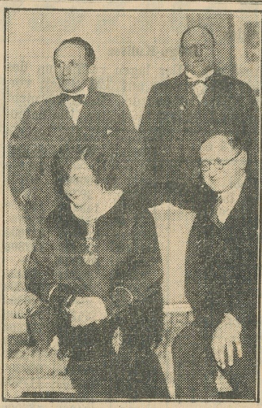
Source: ANNO/Austrian National Library
Renaissance of the Revue: Die große Trommel
A few weeks ago, the newspaper revue Die große Trommel (‘The Big Drum’) by Oscar Friedmann, Felix Fischer, and Camilla Frydan premiered sensationally at the Modernes Theater. In this contemporary revue that captured the spirit of the times, the authors translated the success of a modern newspaper onto the stage. They presented sensations, various sections, and chapters from a serialized novel, as well as editorial meetings, and research – in short, everything one can imagine about newspapers and their surroundings. Critics were thrilled with the revue and repeatedly emphasized its novelty, originality, and humour. The newspaper Die Stunde wrote, ‘Finally, something new again.’ Furthermore, it described the performance as a sensational success and noted that Friedmann and Fischer had succeeded in ‘reviving the already worn-out genre of revue.’ As the illustrated Kronen Zeitung also emphasized, ‘The enthusiastic applause after each act marked the honest success of this novelty.’
g
Oscar Friedmann has once again proved with his latest success that he doesn’t shy away from new genres or professional fields, continuously astonishing Vienna’s theatre and literary scene. The question arises: what will he venture into next? The idea of a celebrity almanac occupies the writer’s thoughts, but he keeps his precise plans a secret.
Oscar Friedmann
born 13 July 1872, Vienna
died 3 November 1929, Vienna
Biography
Oscar (also spelled Oskar) Friedmann was born on 13 July 1872, at Schottenfeldgasse 1, 1070 Vienna, the first son of silk manufacturer Moritz Friedmann (1842–1891) and Caroline (née Eisenberger, 1853–1933). His siblings included the famous writer and actor Egon Friedell (1878–1938) and the painter Elsa Friedmann (1884–1968). After completing his secondary education, Oscar Friedmann pursued studies at the University of Vienna. Instead of taking over his father’s factory, he chose a creative career path and soon became part of the circle of Viennese young literati who regularly gathered at Café Griensteidl.
In 1899, he married Blanche Schnitzer (dates of life unknown), a marriage that lasted for three years. In the same year, Friedmann used his inherited wealth from his father to establish the Wiener Verlag (Vienna Publishing House), where works by famous writers of the Viennese Modernist period, such as Felix Salten (1869–1945) and Robert Musil (1880–1942), were published. By September of 1900, the Wiener Verlag (Bookstore L. Rosner-Sep.-Cto.) had already released 20 titles, including essays, novels, novellas, and plays. In 1903, Friedmann left the publishing house.
g
In 1905, the Intime Theater in the Nestroyhof in Vienna was opened, with Oscar Friedmann assuming artistic responsibility. The theatre evolved into a respected literary small stage, which later transformed its sophisticated program into one focused on entertainment. In 1907, Friedmann applied to the City of Vienna for a concession to operate the theatre. He gained fame for his comedy Das Dreieck (‘The Triangle’), which premiered at the Carltheater in Leopoldstadt in 1905.
In 1910, Friedmann entered into a second marriage with the composer Camilla Friedmann (née Herzel; pseudonym Herzer, later Frydan; 1887–1949), who set music to some of his plays. One year after their wedding, Frydan gave birth to their son, Hans Henry Frydan (born Friedmann; 1911–1998). Oscar lived with his family in Porzellangasse 25 in Vienna’s Alsergrund district until his death on 3 November 1929 at the age of 57.
‘With Oscar Friedmann, a constantly amiable, cheerful, and kind-hearted man who had his own unique qualities has passed away.’
Wiener Zeitung, 5 November 1929
h
What remains?
k
On 3 November 1929, Oscar Friedmann died unexpectedly from blood poisoning at the Vienna General Hospital, following what was supposed to be a routine operation to remove a corn from his foot. In his final days, he was lovingly cared for by his wife, Camilla. Oscar Friedmann was a multitalented artist, so it comes as no surprise that many newspapers published extensive obituaries mourning his death and acknowledging his contributions to the cultural scene. The Wiener Zeitung wrote, ‘With Oscar Friedmann, a constantly amiable, cheerful, and kind-hearted man who had his own unique qualities has passed away.’ Die Stunde emphasized the special relationship between Oscar and his famous brother Egon: ‘He was well-known in Vienna's theatre circles, primarily as Egon Friedell’s brother. The two resembled each other as brothers often do. Oscar was the older of the two, but Egon quickly outgrew him. He became the more famous one, and Oscar always acknowledged this without envy.
Egon Friedell shined as the genius in the family’s showcase. Thirty years ago, Oscar had the greater opportunities.’ In addition to Egon Friedell, who has now, like his brother, faded into obscurity, Oscar Friedmann left behind his wife Camilla and their 17-year-old son Hans Henry, who followed in his father’s artistic footsteps and pursued a career in film.
One of Friedmann’s major goals was to honour individuals from his artistic circles and document them in a celebrity almanac, but unfortunately, his own life and work have faded. Due to his premature death, Friedmann was unable to complete his book, and his wife Camilla finished this labour of love on his behalf. After her husband’s death, Camilla lived briefly in Berlin before emigrating to the United States in 1938 from Vienna with her son Hans Henry.
h
In contrast to his sister-in-law, Egon Friedell chose not to flee into exile. For him, leaving his beloved Vienna and the apartment where he had spent half of his life was impossible. He said, ‘I won’t go [...], what would I do in another country? I would just be a beggar and a ridiculous figure.’ Just a few days after the Anschluss on the evening of March 16, 1938, two SA men rang the doorbell at his apartment in Vienna-Währing. His housekeeper answered the door, and the National Socialists asked, ‘Does the Jew Friedell live here?’ Friedell overheard the conversation. In response, he allegedly leaped from the window of his third-floor bedroom to his death. Today, a memorial plaque in Gentzgasse 7 commemorates this tragic fate. In Porzellangasse 25 in Vienna’s Alsergrund district, Oscar Friedmann’s last known address, there is no memorial plaque, and there are no other public traces of the once well-known playwright.
